CS3342 Lecture 10
Ethics - Ethical Considerarions 'The Power of Creation and Destruction'
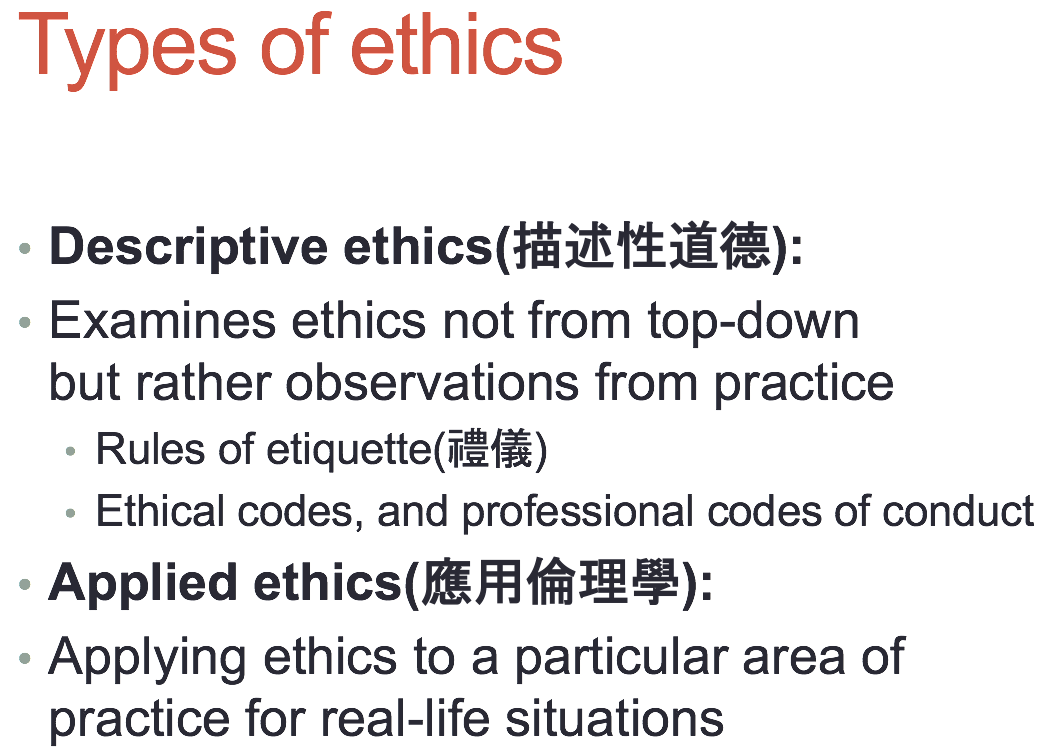
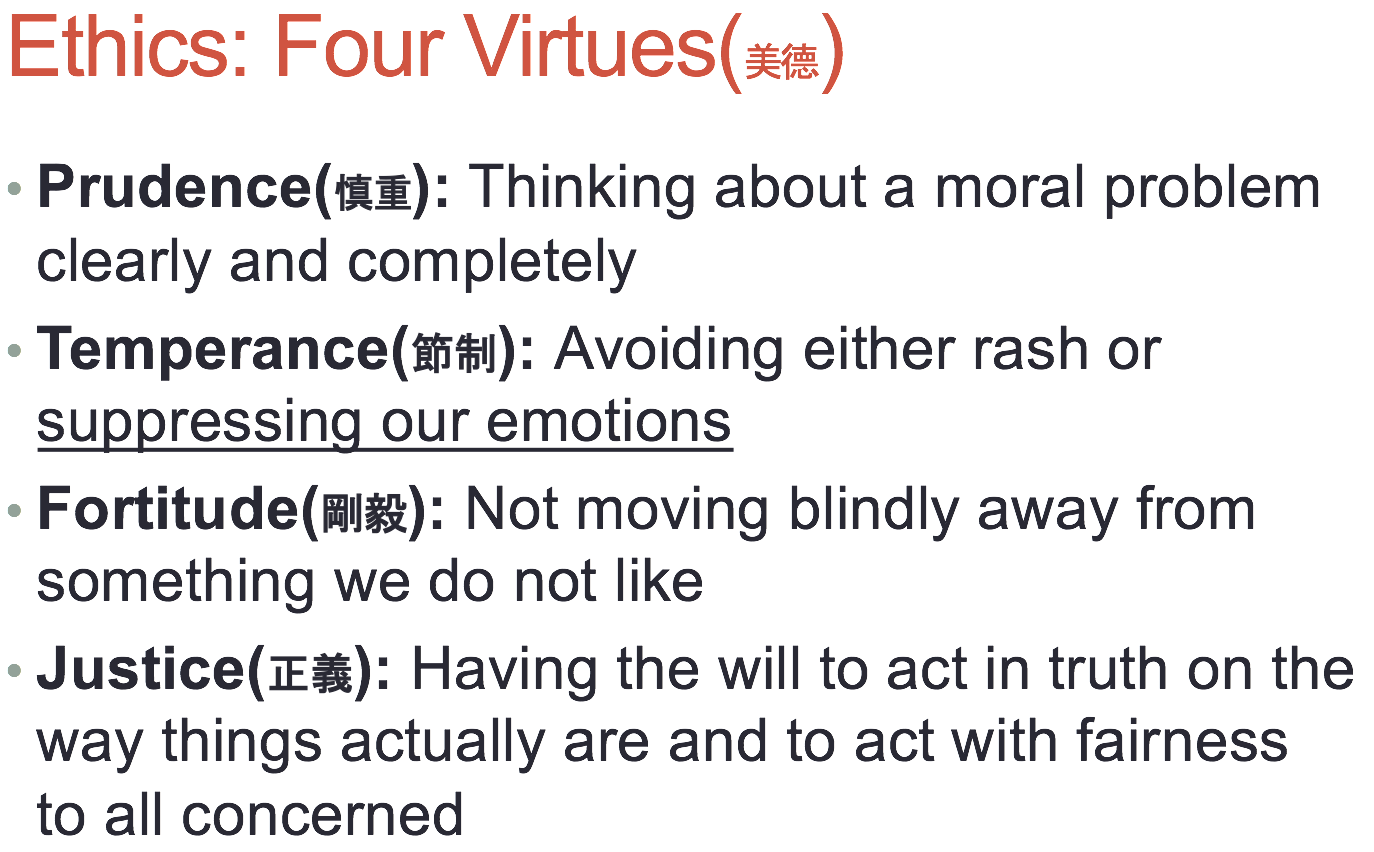

Ask yourself :
- Purpose(目的):
- What is the objective for which you are striving?
- Are you comfortable with that as your purpose?
- Does your purpose hold up when you look at yourself in the mirror?
- Pride(自豪感):
- Can you take pride in the solution you have developed?
- Is there any false pride or self-doubt involved?
- Patience(耐心):
- Have you taken the time to think through all the ramifications and implications of your solution?
- Persistence(把持):
- Are you sticking to your guns and not being dissuaded by other demands?
- Have you given up too soon on finding a solution that is fair and balanced to all concerned?
- Perspective(宏觀透視):
- Have you taken the time to focus inside yourself to be sure everything fits with your ideals and beliefs?
- How does the solution fit into the “Big Picture?”
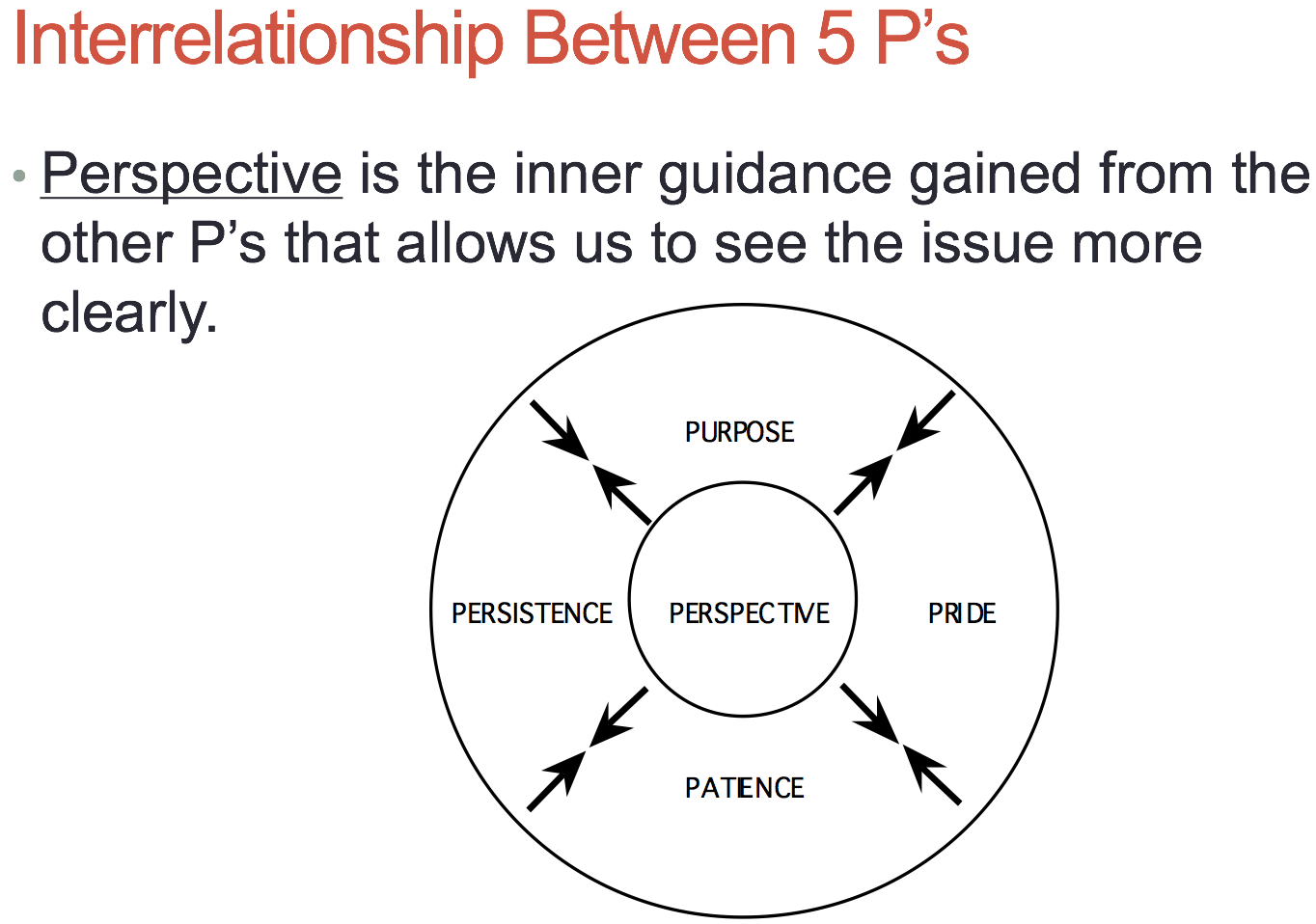
Case Study - The Holiday Gift
Henry is in a position to influence the selection of suppliers for the large volume of equipment that his firm purchases each year. At holiday time, he usually receives small tokens from several salesmen, ranging from inexpensive ballpoint pens to a bottle of liquor. This year, however, one salesman sends an expensive briefcase stamped with Henry’s initials. This gift is very much out of the ordinary.
Should Henry:
- Keep the case, on the grounds that his judgment will not be affected in any way?
- Keep the case, since it would only cause embarrassment all around if the case were returned?
- Return the case?
- Other? (Please specify)
Using 5 P's:
- Purpose: Ask yourself what you would do if you were in Henry’s shoes to remain unbiased in selecting the best supplier for a given job.
- Pride: Would you feel pride in accepting the case or pride in returning the case?
- Patience: Set aside a time to think about whether or not you should accept the case. Talk to someone whose judgment you trust.
- Persistence(把持): Have you pursued all avenues to resolve either keeping or returning the case?
- Perspective: Even if you feel your judgment will not be affected by accepting the case, how will it appear to other colleagues? Are you setting a good example? Influences?
Options of Others:
- “Keep the case and really not be affected by it, which means that the next holiday you’re back on ballpoint pens.”
- “As a procurement agent on a limited scale, I have heard of colleagues receiving Porsches. The gifts only get bigger if you accept the first. Eventually, it will affect your judgment.”
- “I sometimes feel guilty accepting a gift knowing that the giver won’t get anything out of it. But I won’t be bribed.”
- “My price is very much higher than a briefcase. As a matter of fact it is so high that it would not be profitable to meet it.”
- “Henry risks being fired for a crummy $8000 briefcase. That’s the trouble, it’s never two fully paid round-trip tickets to Hawaii, it’s always cheap junk.”
People make judgments based on:
- Their own experience and recollections (age dependent)
- Evaluation of the risks involved (risk dependent)
- Trade offs between the options and their values (value dependent)
- Balanced decision is very difficult

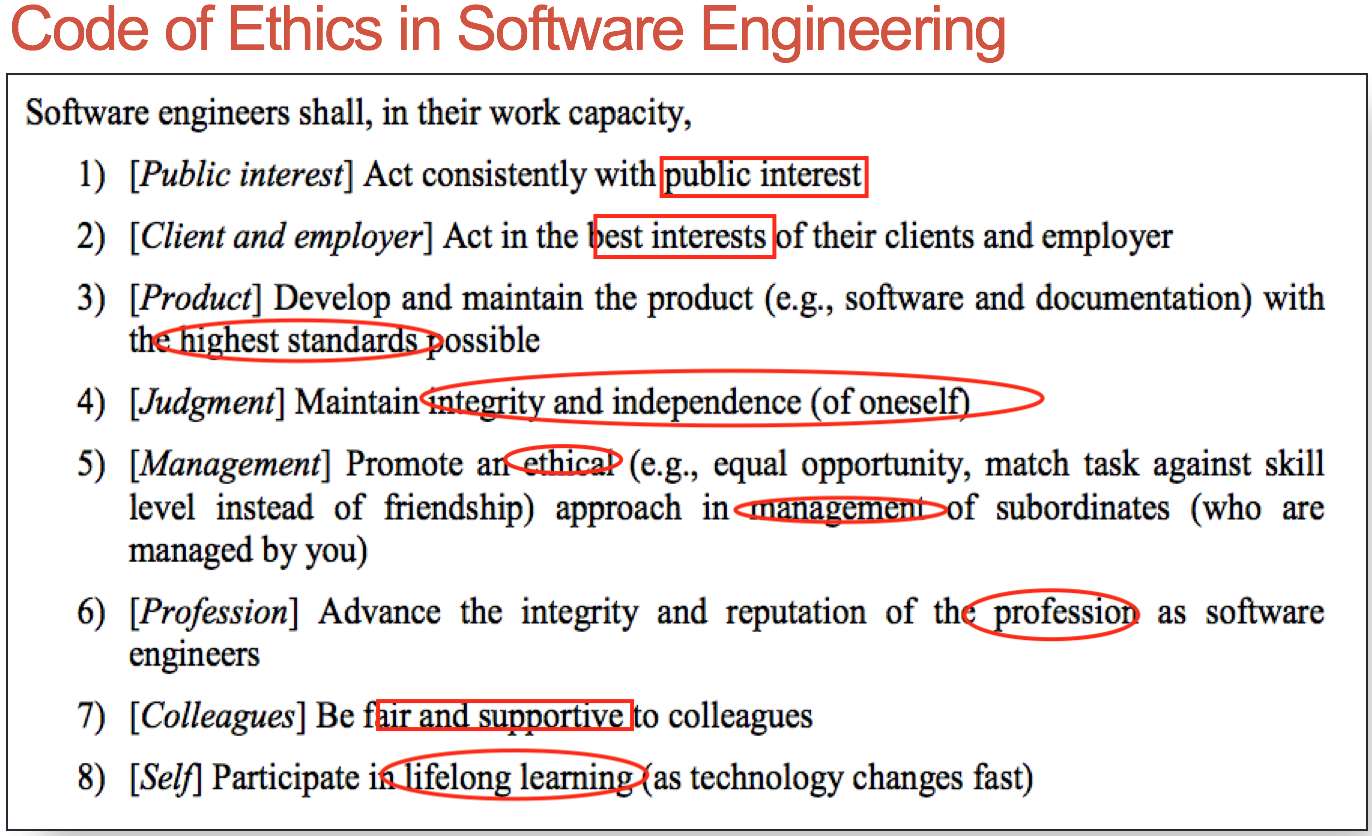
Importance of Ethics to Software Engineers:
- Code of ethics for SE- Can be powerful instruments in the drive for professionalism and in establishing safeguards for society.
- Codes try to educate and inspire professional members that adopts the code and to follow.
- Codes are also inform the public about the responsibilities that are important to a profession.
- Codes instruct practitioners about the standards the society expects them to meet, and what their peers strive for and expect of each other.
- Codes offer practical advise about issues that matters to professionals and their clients.
SE code of Ethics - Case Study
A team of software engineering students try hard to finish their group project that develops a software application to meet the assignment requirement. However, Student X (a member of the same team) contributes virtually nothing to the course project.
Is Student X Ethical?
The team hides the case from the course instructor, and collectively claim that Student X contributes equally to the project.
Is the Team Ethical?
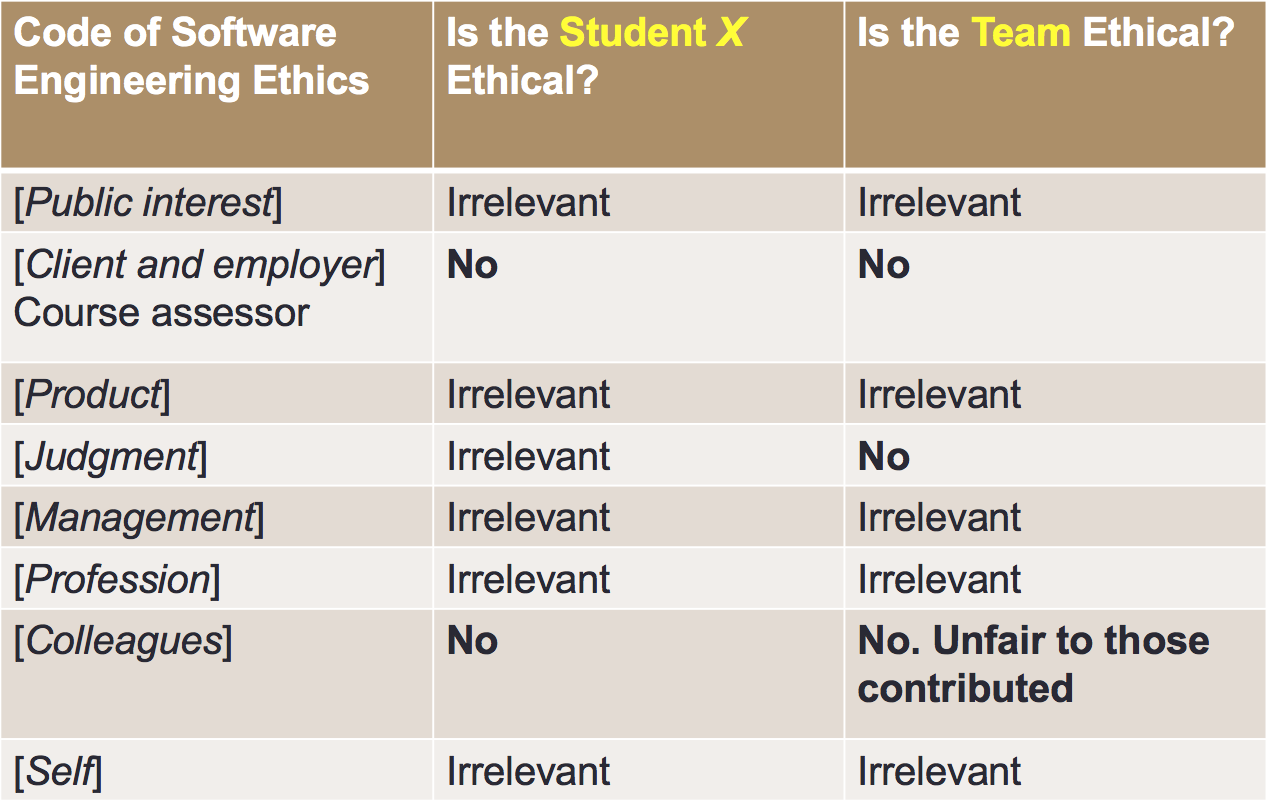
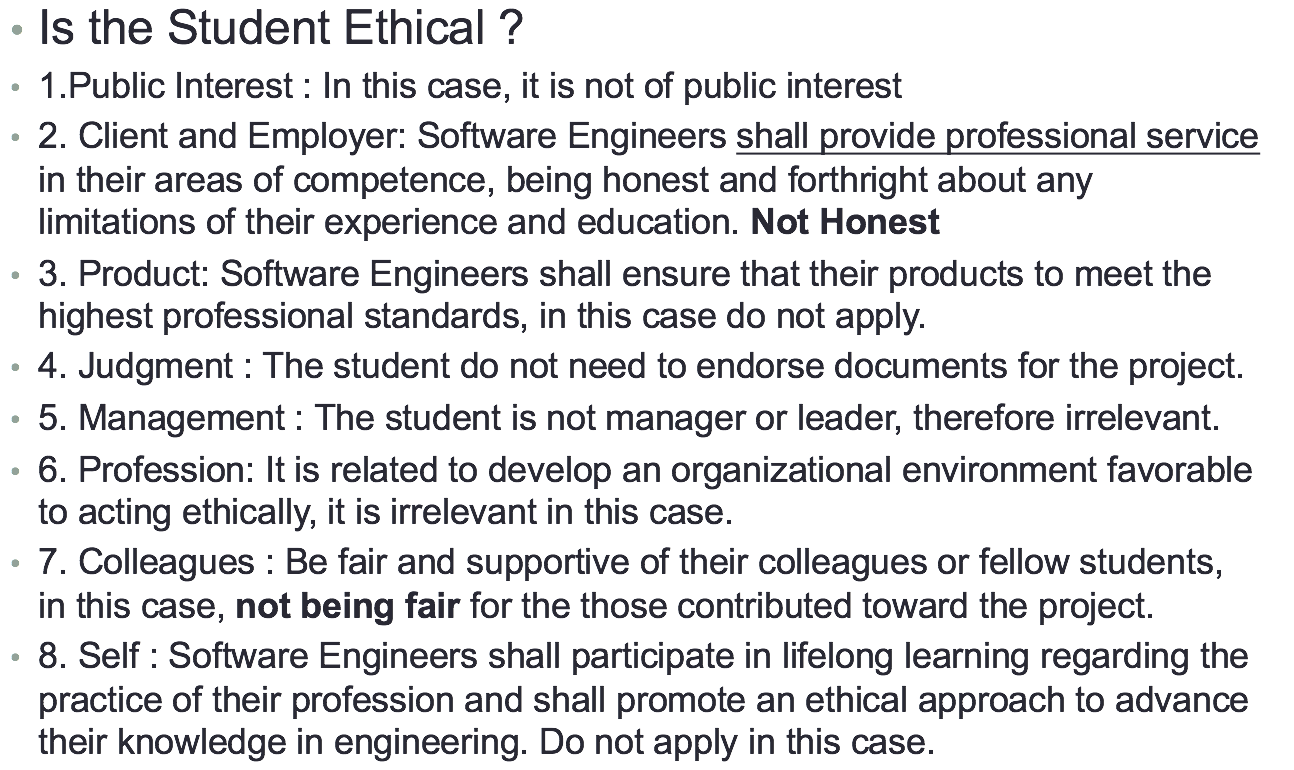
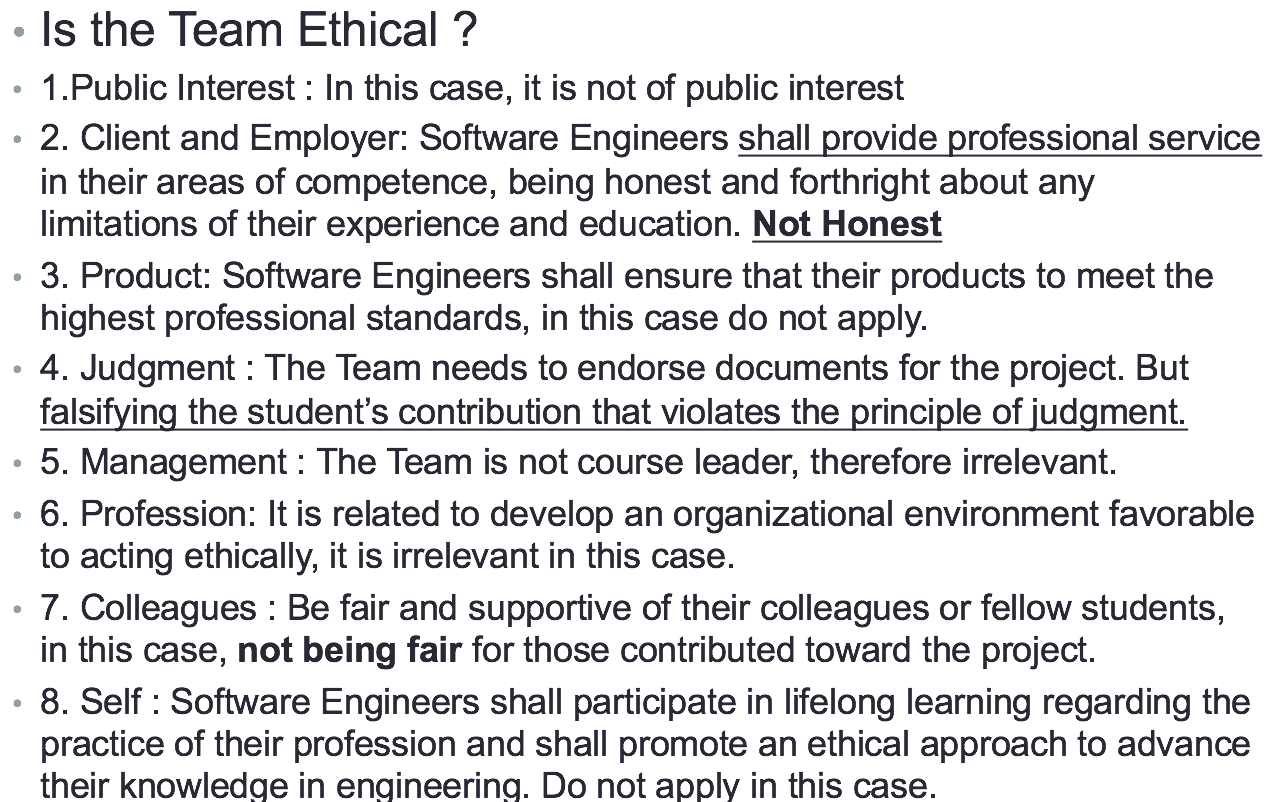


 浙公网安备 33010602011771号
浙公网安备 33010602011771号